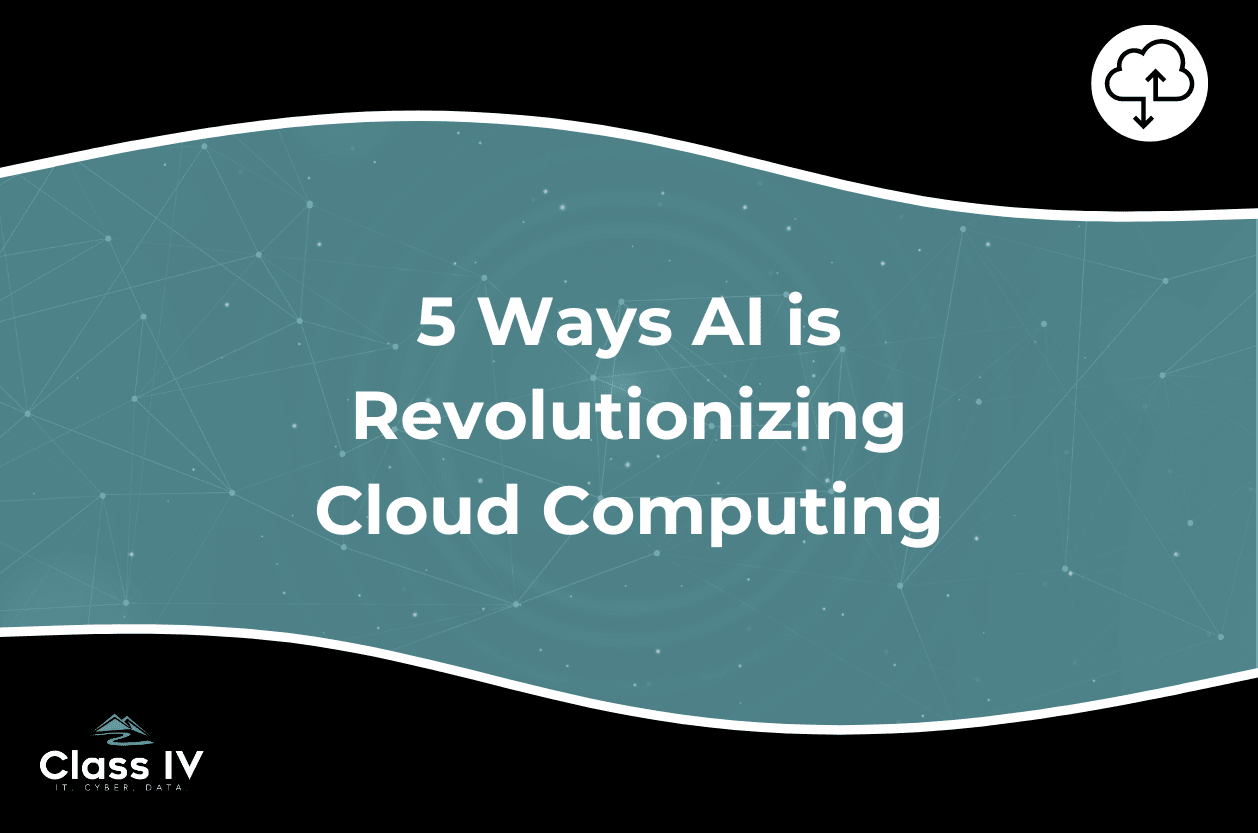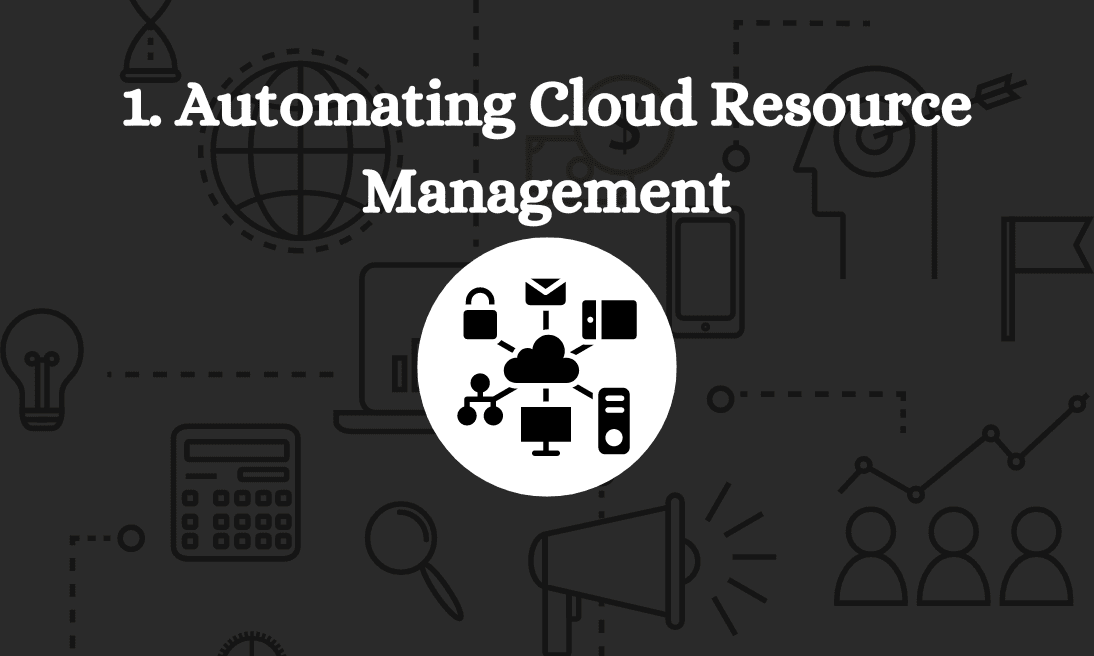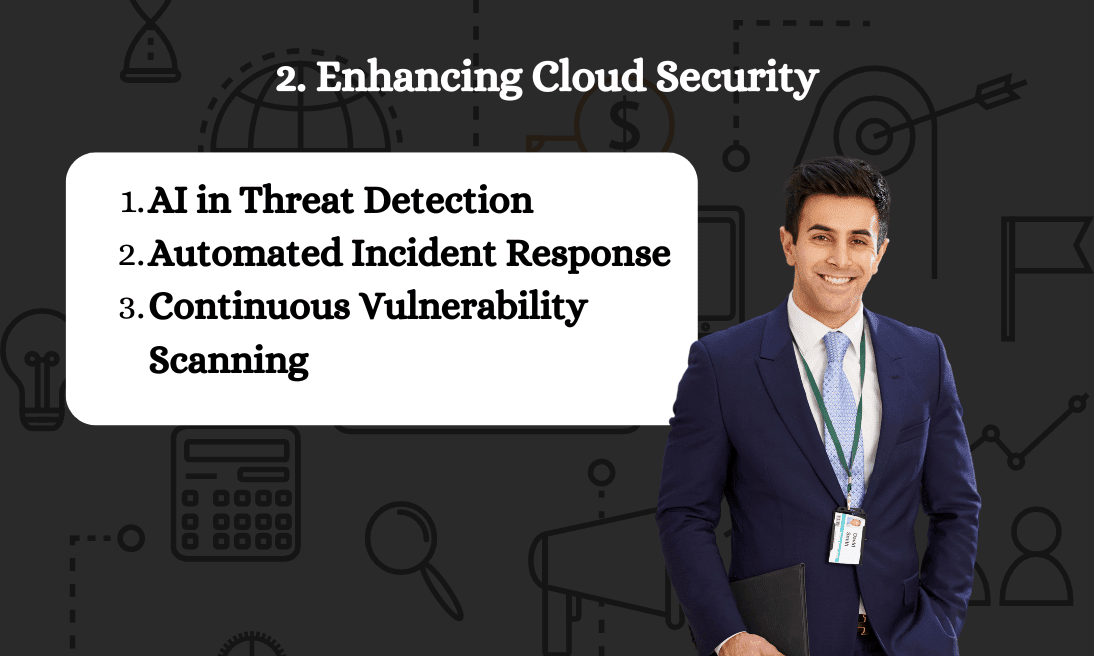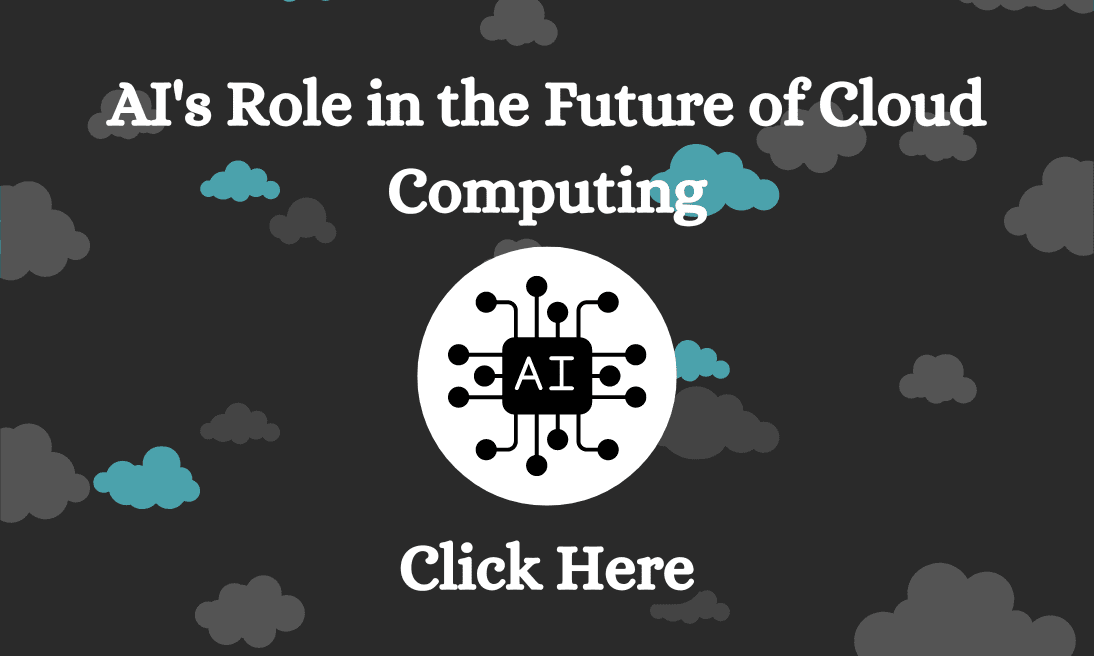
- Home
- Cybersecurity Tips
- 5 Ways AI is Revolutionizing Cloud Computing
Navigating cloud computing can often feel like juggling numerous tasks, each demanding constant attention. Luckily, artificial intelligence (AI) is revolutionizing cloud resource management by automating many of these processes. From optimizing resource allocation to preemptively solving problems, AI is making cloud operations more efficient, intelligent, and user-friendly. But what does this automation look like, and how does it benefit businesses? Below, we’ll dive into the practical ways AI is transforming cloud management, streamlining tasks that once required manual oversight, and helping companies optimize their cloud investments for the long term.

1. Automating Cloud Resource Management
Navigating the world of cloud computing can feel like spinning many plates at once. Fortunately, artificial intelligence (AI) is stepping in to lend a helping hand, particularly in automating the intricate dance of cloud resource management. But what exactly does that look like in practice? Let’s explore how AI is streamlining cloud operations, making them more efficient and intuitive.
AI-Powered Auto-Scaling
Imagine this: your application experiences a sudden surge in traffic (always a good problem to have!). Traditionally, you might need to adjust your cloud resources manually to accommodate the increased demand. However, with AI in cloud computing, this process can be completely automated. Intelligent algorithms can analyze real-time traffic patterns and automatically scale your cloud resources up or down, ensuring optimal performance without manual intervention. This proactive approach not only saves time but also optimizes resource allocation, preventing unnecessary expenses from over-provisioning.
Predictive Maintenance
Shifting from reactive to proactive, cloud computing and AI, when used in tandem, offer a robust solution: predictive maintenance. Rather than waiting for a system failure (and then scrambling to fix it), AI algorithms can analyze historical data and real-time performance metrics to predict potential issues before they even arise. Think of it as having a crystal ball for your cloud infrastructure, allowing you to address vulnerabilities preemptively and minimize costly downtime. This proactive approach ensures smoother operations and contributes to a more stable and reliable cloud environment. As cloud AI solutions become more sophisticated, the integration of predictive maintenance will likely become even more integral to cloud management strategies. And it’s not just about saving the day; it’s about making the entire cloud experience smoother and more efficient. After all, a well-maintained cloud is a happy cloud!
This seamless integration of AI and cloud computing isn’t just a technological leap; it’s a strategic advantage, allowing businesses to optimize their cloud investments and propel their digital transformation journeys forward. As more organizations recognize the transformative potential of this powerful synergy, the cloud computing artificial intelligence market is poised for remarkable growth. In fact, according to Goldman Sachs Research, “[t]he total addressable market for cloud services is poised to expand at a 22% compound annual growth rate from 2024 to 2030, driven partly by AI adoption.”

2. Enhancing Cloud Security
The convergence of cloud computing and AI is revolutionizing traditional security approaches, leading to more proactive and efficient threat detection and response mechanisms. This synergy is crucial, as highlighted by Goldman Sachs’ prediction that five major US tech companies will invest a staggering \$215 billion in generative AI in 2023, a significant leap from \$125 billion in 2022. This investment underscores the growing significance of AI in cloud computing, particularly in bolstering cloud security.
AI in Threat Detection
Artificial intelligence is transforming threat detection in cloud environments. Traditional security tools often struggle to keep pace with the dynamic nature of cloud-based threats. AI, specifically machine learning algorithms, excels at analyzing vast datasets and identifying patterns indicative of malicious activity. By continuously learning from data, AI-powered systems can detect anomalies, identify known attack signatures, and even predict emerging threats before they materialize. This proactive approach significantly enhances cloud security posture.
Automated Incident Response
Beyond threat detection, AI in cloud computing enables automated incident response, a critical aspect of minimizing the impact of security breaches. When a threat is detected, AI-powered systems can automatically trigger pre-defined security protocols. This could involve isolating compromised systems, quarantining malicious files, or even deploying virtual patches to mitigate vulnerabilities in real-time. This rapid response capability reduces the window of opportunity for attackers and minimizes potential damage.
Continuous Vulnerability Scanning
Another crucial aspect of cloud security is vulnerability scanning. AI enhances this process by automating continuous scanning of cloud environments for potential weaknesses. Unlike traditionally scheduled scans, AI-powered tools can dynamically adapt to changes in the cloud environment, ensuring comprehensive coverage and identifying vulnerabilities in real time. This proactive approach allows organizations to address security gaps promptly, reducing their attack surface and strengthening their overall cloud security.
3. Improving Data Management and Analysis
A game-changer in data management and analysis, cloud AI emerges as a transformative force. As businesses increasingly rely on data-driven decision-making, the ability to efficiently store, process, and extract insights from vast datasets becomes paramount. This is where the synergy of AI in cloud computing truly shines.
Think about it: traditional data management systems often struggle to handle the sheer volume and complexity of data generated today. However, AI cloud services, with their virtually limitless scalability and processing power, offer a compelling solution. These services can ingest, store, and analyze massive datasets in real time, enabling organizations to make faster and more informed decisions.
Furthermore, AI cloud computing empowers businesses to move beyond simply collecting data to actually understanding it. Machine learning algorithms can sift through structured and unstructured data alike, identifying patterns, trends, and anomalies that would likely escape human analysts. This newfound ability to extract actionable insights from data unlocks unprecedented opportunities for optimization and innovation across various business functions. Notably, Goldman Sachs research suggests that “only about 30% of workloads have moved to the cloud,” highlighting significant room for growth in cloud adoption and, by extension, AI integration. This indicates that we’re merely scratching the surface of what cloud artificial intelligence can achieve in data management and analysis.
4. Optimizing Cloud Cost Efficiency
The fusion of cloud computing and artificial intelligence has paved the way for innovative solutions designed to optimize cloud cost efficiency. This synergy empowers businesses to harness the power of AI in cloud computing while keeping expenditures in check. Let’s explore how AI is transforming cost management in the cloud.
AI-Driven Cost Management
Cloud AI offers a proactive approach to cost management. AI-powered tools can analyze historical usage patterns, identify anomalies, and recommend optimal resource allocation strategies. This ensures that businesses only pay for the cloud resources they actually need, minimizing wasted spending.
AI in Cloud Cost Forecasting
Accurate cost forecasting is essential for effective budget planning. AI cloud computing offers predictive capabilities that enable businesses to anticipate future cloud expenses with greater accuracy. By leveraging machine learning algorithms, these platforms can analyze historical data, identify trends, and generate forecasts that inform budget allocation and prevent unexpected cost overruns. As cloud computing and AI continue to converge, we can expect even more sophisticated cost optimization solutions to emerge. These advancements will further empower businesses to maximize their cloud investments while maintaining a firm grip on their budgets. In fact, according to Spacelift, “[b]y 2027, 70%-plus enterprises will use industry cloud platforms to accelerate their business initiatives, partly driven by generative AI adoption.” (Source: Spacelift) This data highlights the growing significance of AI in shaping the future of cloud computing.
5. Enabling AI-as-a-Service (AIaaS)
AI-Powered Tools for Businesses
Not every business has the resources or expertise to build their own AI solutions from scratch. That’s where AI cloud platforms come into play. These platforms, often referred to as AI cloud services, offer a way for businesses to leverage the power of AI without the need for extensive in-house expertise or infrastructure. Essentially, AI cloud providers are democratizing AI by making it accessible to a broader range of organizations.
Scalable AI Models
One of the key advantages of using an AI cloud platform is the scalability it offers. Imagine you have a machine learning model that you’ve trained on a small dataset. As your business grows and you gather more data, you’ll need to retrain and refine that model. This process can be computationally expensive and time-consuming.
Here’s where AI cloud companies shine. They provide the infrastructure and tools to scale your AI models effortlessly. Whether you need to handle massive datasets or deploy complex algorithms, AI cloud platforms provide the computational muscle you require. This scalability ensures that your AI solutions can grow alongside your business needs without missing a beat.
Conclusion: AI's Role in the Future of Cloud Computing
The intersection of AI and cloud technologies is already reshaping business as we know it. This powerful synergy unlocks possibilities that were previously out of reach. As businesses and industries continue to embrace digital transformation, the integration of AI in the cloud will only accelerate.
This rapid evolution makes one thing abundantly clear: cloud computing AI will be a defining force in shaping the future. This transformative technology will pave the way for groundbreaking innovations across various sectors. From optimizing operations to driving unprecedented efficiency, the AI cloud will continue to empower businesses on their journey toward a smarter, more automated future.
As AI and cloud computing continue to evolve and drive business innovation, staying ahead of these trends will be crucial for maintaining a competitive edge.
Whether you’re looking to optimize your current cloud strategy or explore AI-driven solutions, Class IV can help. Our team specializes in leveraging AI and cloud technologies to deliver tailored IT solutions that fuel business growth and digital transformation. Let us guide you through these technological advancements and unlock the full potential of your cloud infrastructure.
Contact Class IV today to discover how our expertise can propel your business into the future.


